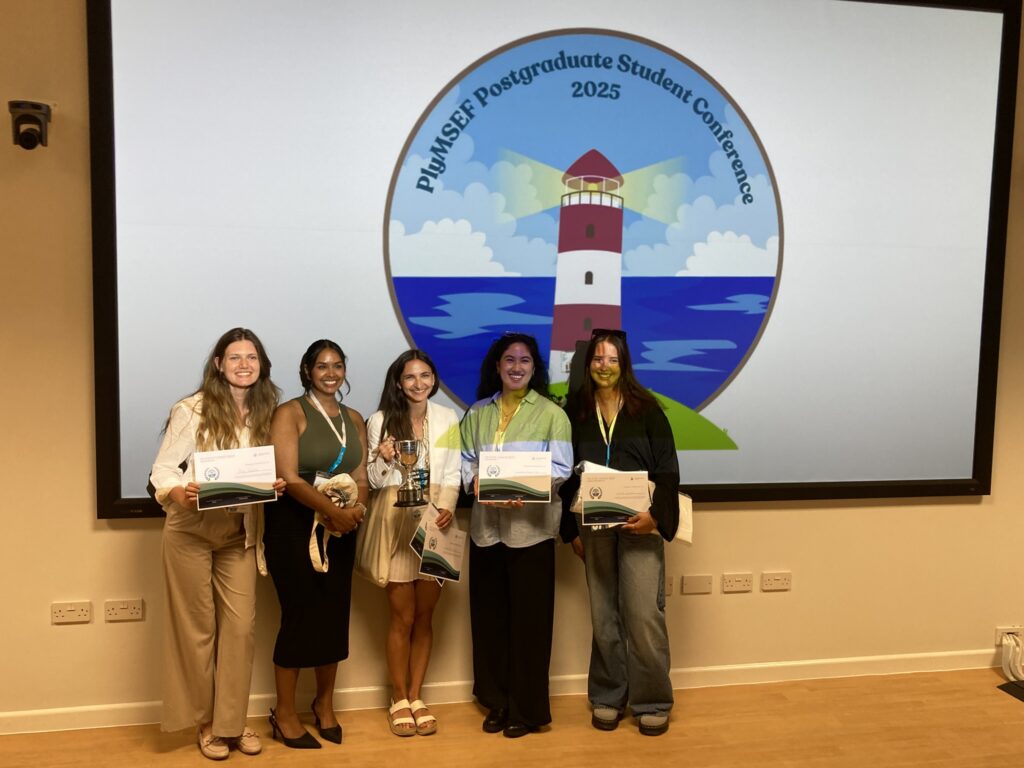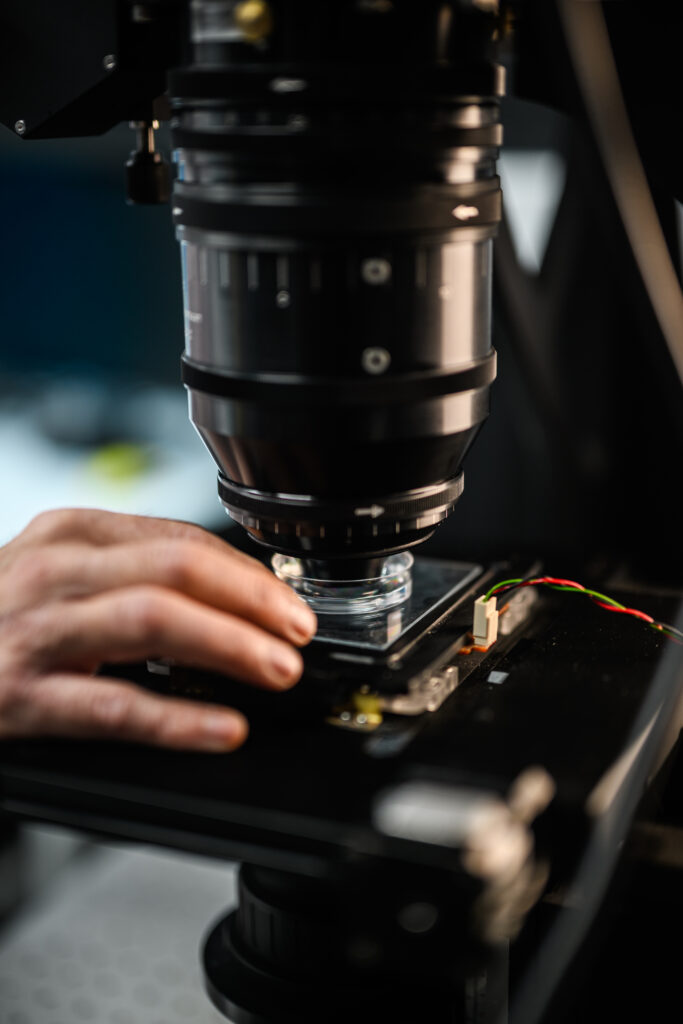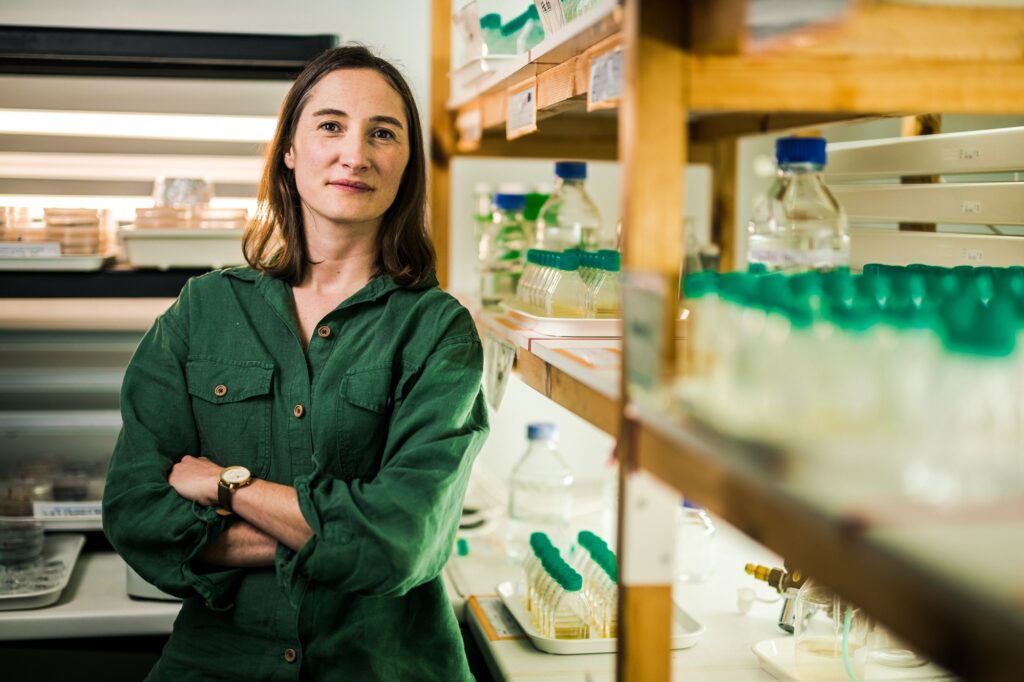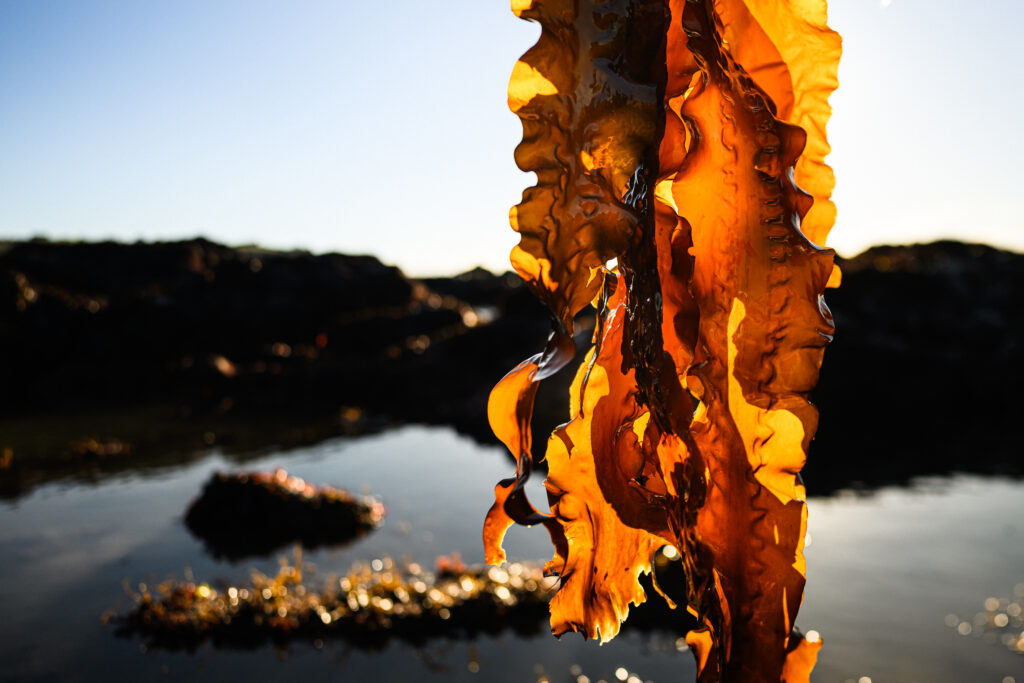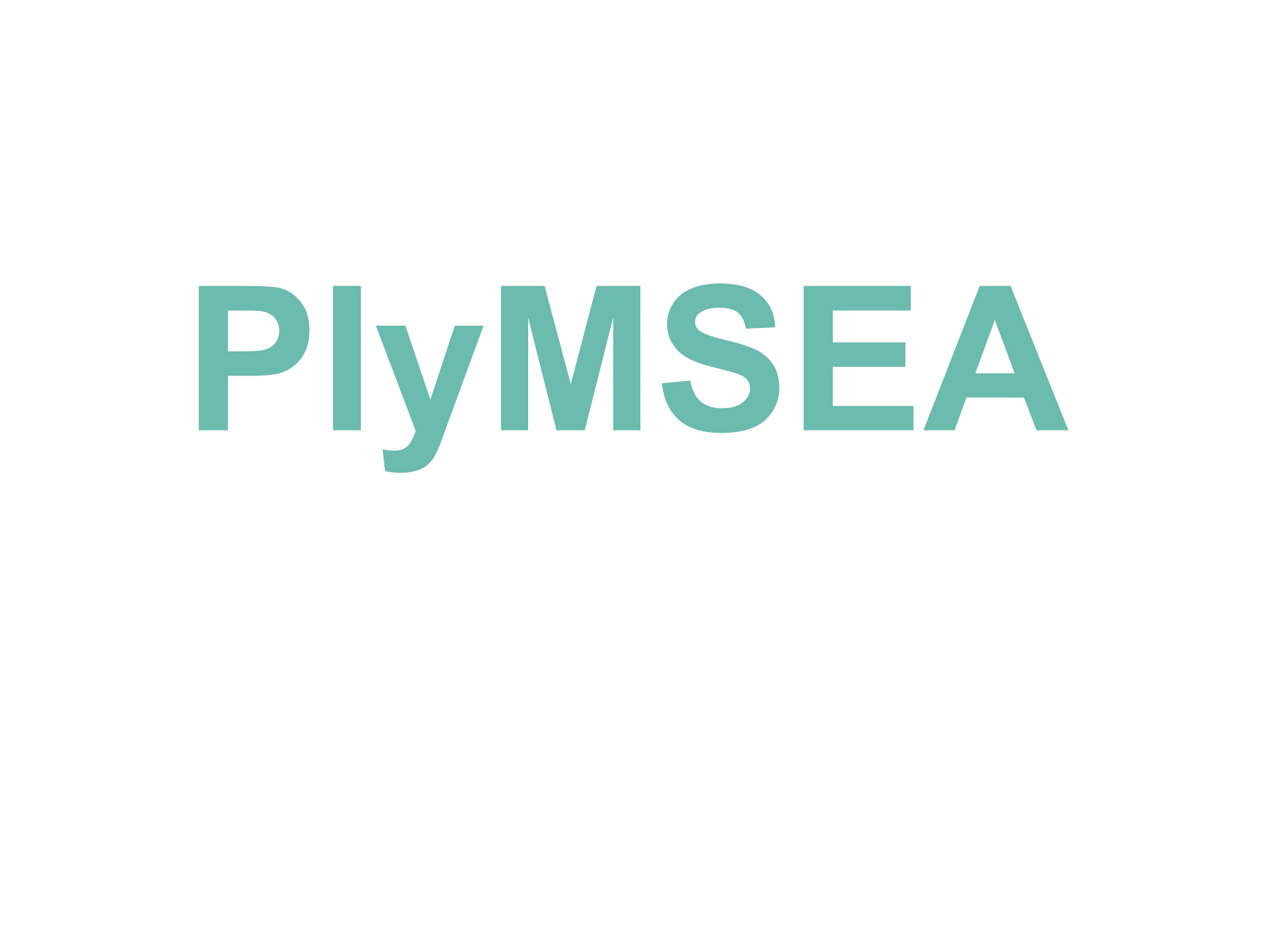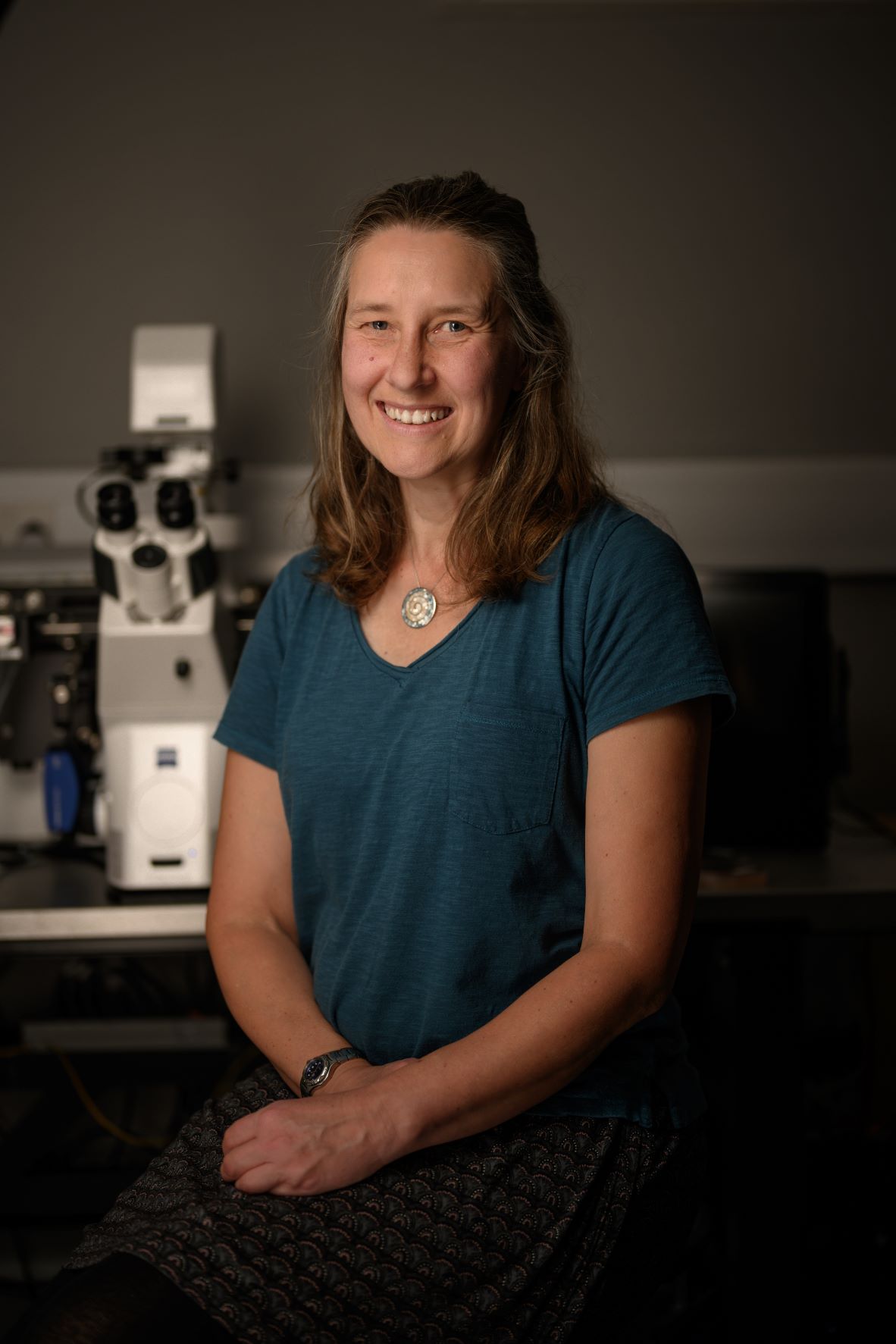Algal Microbiome
and Ecophysiology
Research Lead – Dr Katherine Helliwell
Marine algae are an evolutionarily and metabolically diverse group of organisms that sustain life in the oceans as major primary producers. Despite their crucial environmental importance, basic aspects of algal biology, physiology and genetics remain unexplored. A key motivation of our work is elucidating fundamental molecular mechanisms controlling how algae interact with their environment and other planktonic microbes in the ocean, how these interactions evolve, and the metabolic processes that govern them.
We employ molecular and cell biology methodologies such as CRISPR-Cas9 gene editing, proteomics, microscopy, genome mining as well algal physiology. Another key ambition is developing and applying environmental sampling approaches to study natural phytoplankton populations, to better understand the environmental factors controlling them.
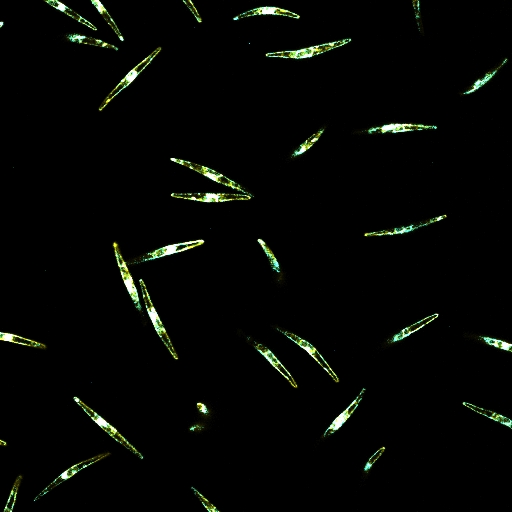
Our Research Impacts
Diatom Sensory Mechanisms
One of the most globally abundant phytoplankton taxa are the diatoms. These single-celled microalgae are particularly successful bloom formers. We have developed new tools to study single cell signalling responses of model marine diatoms to different environmental cues (Helliwell et al., Current Biology, 2019; Helliwell et al., New Phytologist, 2021). This has led to important new advances elucidating how diatoms sense the availability of crucial macronutrients such as phosphorus, which controls diatom growth and productivity in the oceans (Helliwell et al., Current Biology, 2021). We discovered a new role for calcium ion (Ca2+) signalling in eukaryotes, for phosphate sensing, which has not previously been described. We also identified that this novel phosphorus-Ca2+ signalling pathway coordinates rapid crosstalk between phosphorus and nitrogen metabolism, maximising diatom competition for two these critical nutrients. We are now further exploring interplay between nutrient signalling networks (Helliwell, Trends in Plant Sciences, 2022). Our work provides vital insights into how diatoms are so successful in rapidly responding to their environment, to dominate algal bloom formation.
Phytoplankton-bacteria interactions
We are also interested in studying the biotic interactions of phytoplankton with other microbes. A key focus has been examining the role of vitamins in driving synergistic interactions with bacteria. Our work on vitamins in the sea has been featured by the NY Times. We are now broadening these investigations to study antagonistic diatom-bacteria interactions. A recent study isolating naturally-occurring bacterial pathogens of diatoms from the Western English Channel, identified peaks in pathogen detection during demise of a diatom bloom. This work raises important questions regarding impacts of antagonistic bacteria on the health of natural diatom populations. This is particularly pertinent in light of evidence of declining diatom abundances in this productive coastal ecosystem.
Key Publications
Latest Projects
Diatom sensory mechanisms: drivers of global marine productivity – NERC Independent Research Fellowship.
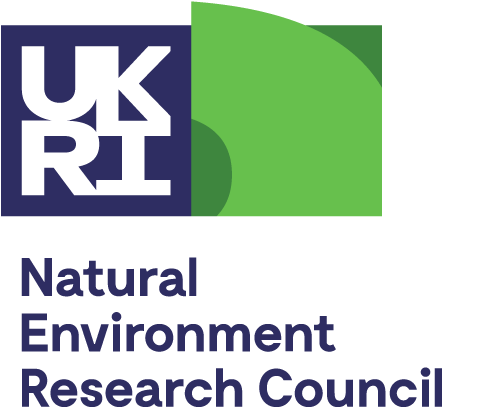
Dissecting the integration of phosphorus and nitrogen nutrition signals in diatoms – BBSRC New Investigator grant.
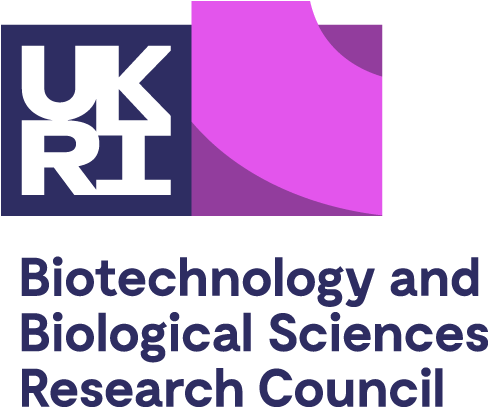
Sequencing 100 diatom species for providing unique insights into their roles as key players for capturing carbon dioxide and as the foundation of diverse aquatic food webs – Joint Genome Institute.

Our Team
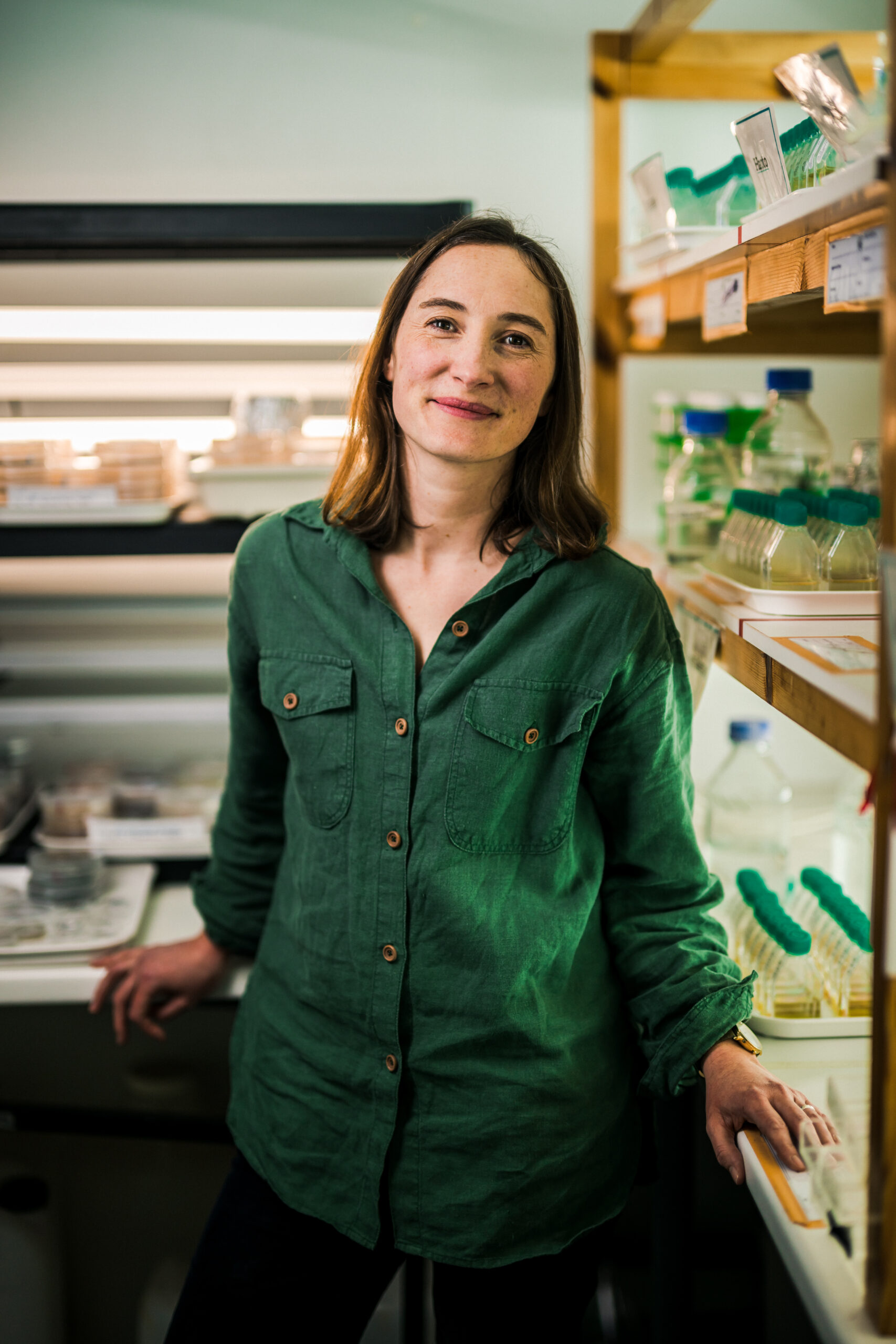
Dr Katherine Helliwell
NERC Independent Research Fellow
Dr Katherine Helliwell
NERC Independent Research Fellow
I am a molecular microbiologist interested in the fundamental biology of photosynthetic marine microbes, which critically underpin marine ecosystems. Following a degree in Biological Sciences at the University of Bristol, I pursued a PhD and postdoc with professor Alison Smith in the Department of Plant Sciences, University of Cambridge. During this time my work dissected the role of organic nutrients (vitamins) in governing interactions between phytoplankton and bacteria, and brought significant advances to our understanding in vitamin metabolism in aquatic microbes. After a postdoc at the MBA with Professor Colin Brownlee on algal signalling mechanisms, I was awarded a NERC Independant Research Fellowship and currently hold a joint appointment with the University of Exeter. Our research group couples novel molecular tools with environmental methods to investigate interactions of algae with other marine microbes, algal nutrient physiology and cell signalling mechanisms. Our overarching aim is to better understand how algae sense and respond to their environment.
Research Group: Algal Microbiome and Ecophysiology
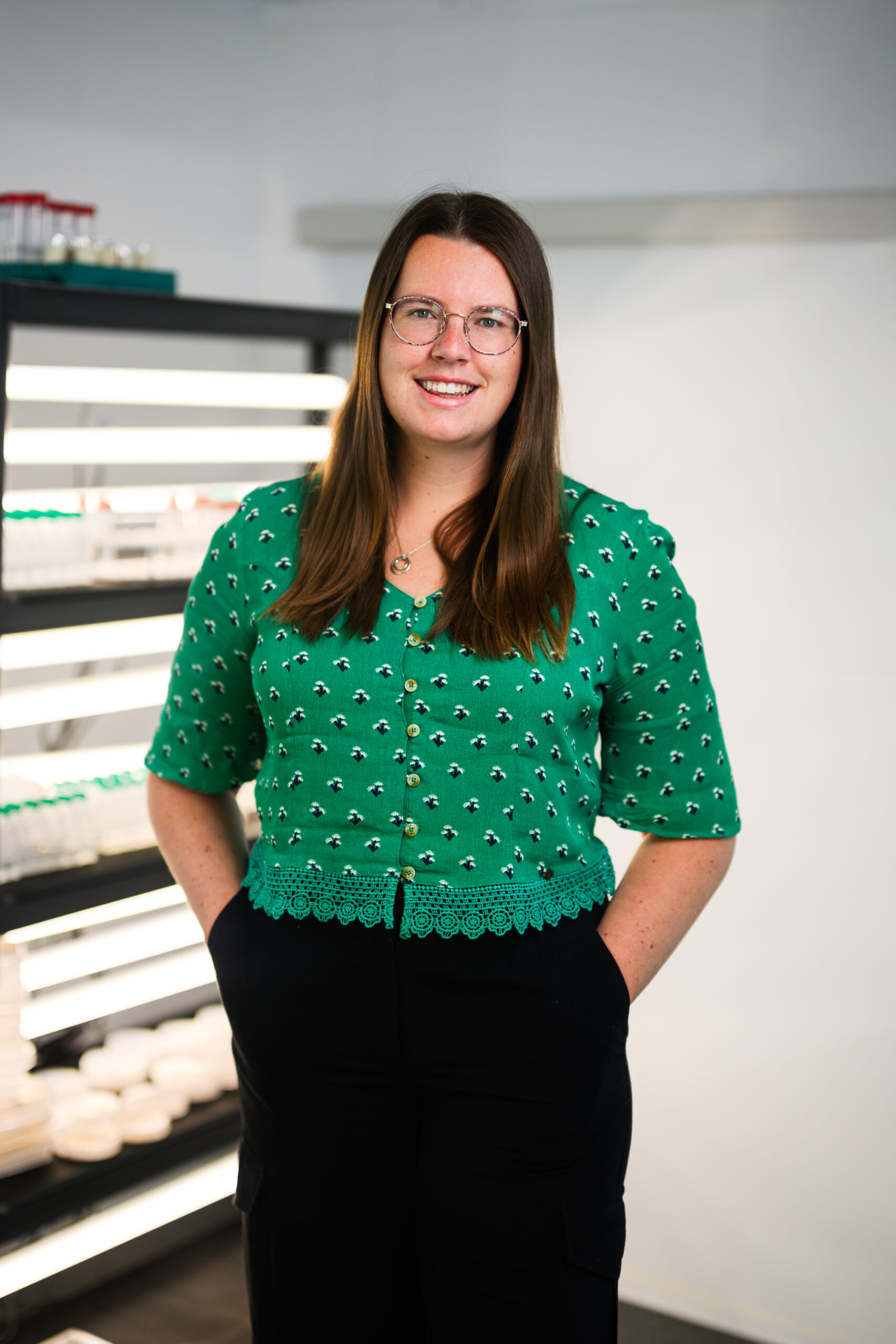
Stephanie Day MSci
PhD Student
Stephanie Day MSci
PhD Student
I am a PhD researcher specialising in how organic nutrients sustain shelf sea productivity. My research aims to characterise dissolved organic nutrient pools and examine how these are used by coastal phytoplankton communities.
To investigate my research aims, I will collect and analyse field samples using analytical chemistry techniques and microbiological experiments. These methods will contribute towards unravelling the interactions between organic nutrients and phytoplankton in the Western English Channel coastal environment. My PhD is funded by the Marine Research Plymouth partnership and co-supervised by Dr Katherine Helliwell (MBA), Professor Mark Fitzsimons (University of Plymouth) and Dr Andy Rees (Plymouth Marine Laboratory).During my MSci Environmental Science at the University of East Anglia, I researched how additions of inorganic nutrients to coastal water samples influenced chlorophyll concentration. My atmospheric chemistry internship, master’s year studying at the Institute of Marine and Antarctic Science at the University of Tasmania and recent BIO-CARBON research expedition have nurtured my desire to pursue a marine science research career. I am looking forward to exploring all that Plymouth has to offer.
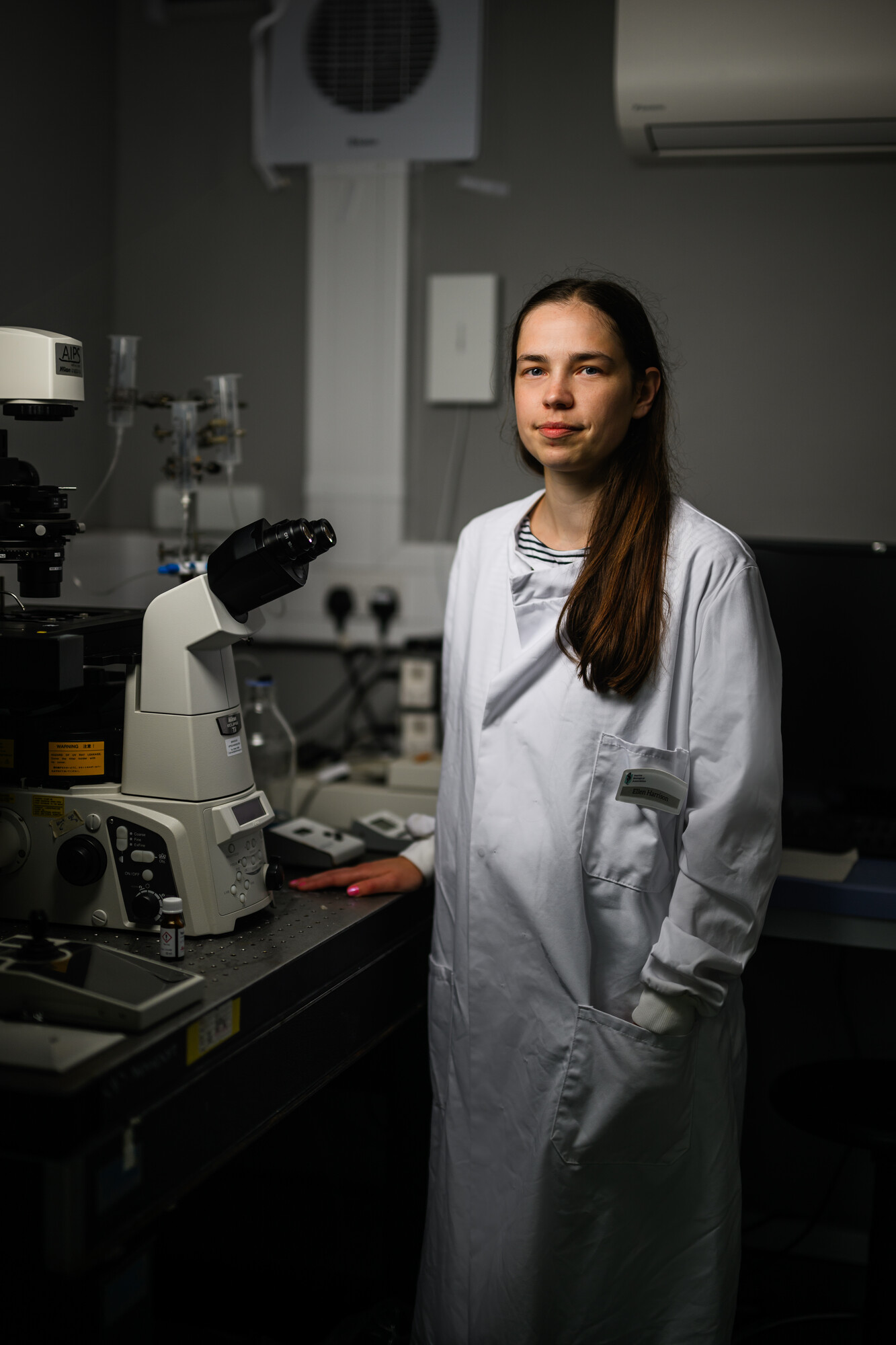
Dr Ellen Harrison
Postdoctoral Researcher
Dr Ellen Harrison
Postdoctoral Researcher
Currently, my research focuses on how marine phytoplankton sense and respond to nutrient levels in their environment. I recently completed my PhD which investigated how algae-bacterial cocultures could be used to supply vitamin B12 to astronauts on long space missions. This was part of a wider collaboration, the MELiSSA project, or Micro-Ecological Life Support System Alternative project that aims to provide all the basic life support necessary for long-distance space exploration.
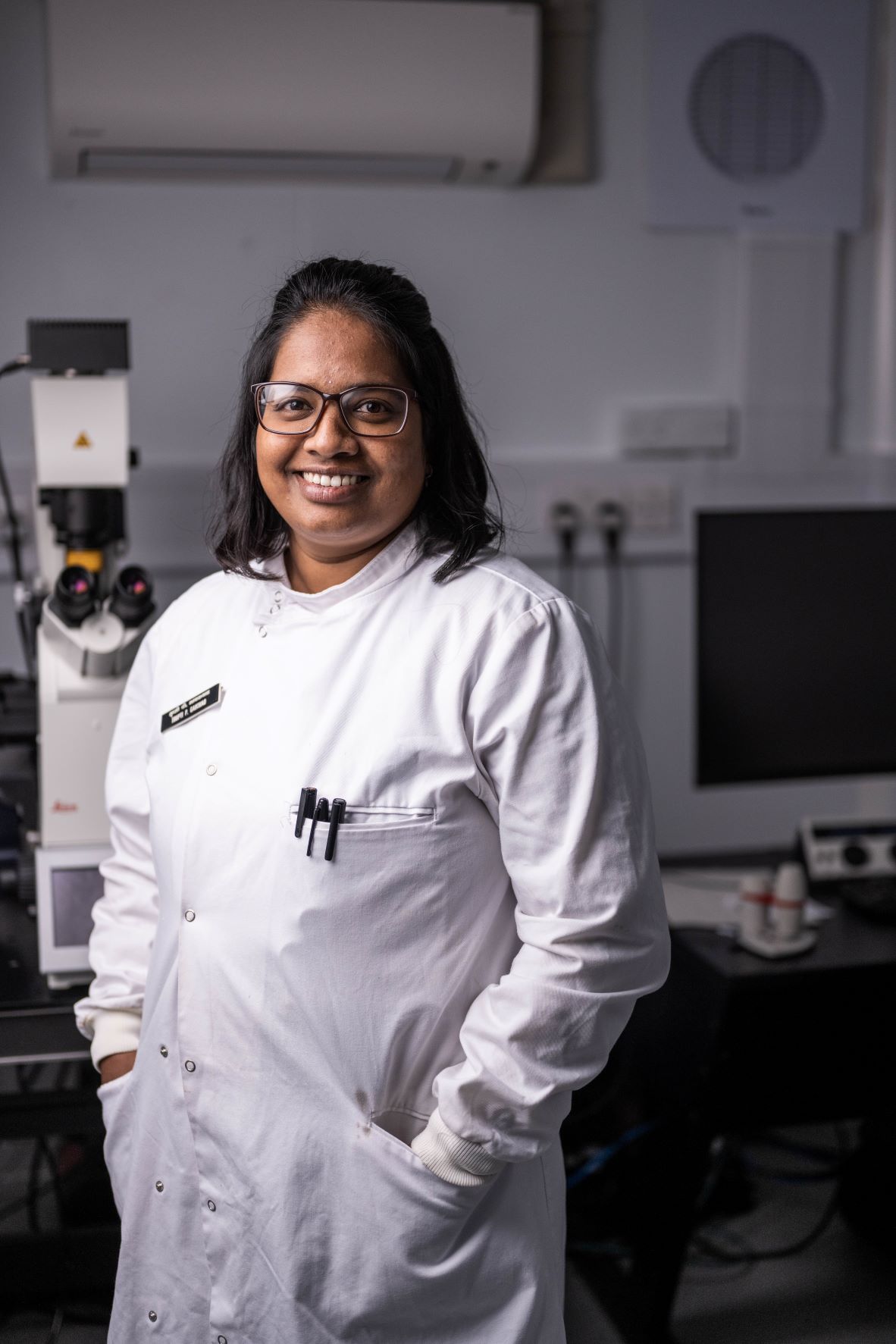
Dr Trupti Prakash Gaikwad
Post Doctoral Researcher
Dr Trupti Prakash Gaikwad
Post Doctoral Researcher

trugai@mba.ac.uk
I obtained a BSc in Agriculture and an MSc in Agricultural Microbiology from India. I completed my PhD in Biological Sciences at the University of Exeter, which was fully funded by the government of India. I worked as a Research Fellow for a year at the University of Warwick in the lab of Professor Murray Grant. Then I worked as a Post-doctoral Research fellow at the University of Plymouth in the lab of Associate Prof George Littlejohn. I joined the Marine Biological Association in October 2019 as a Cell and Molecular Research Assistant and Manager of the Mary Parke Bioimaging Centre. I worked with Dr. Glen Wheeler and Dr. Katherine Helliwell to study the physiology of marine phytoplankton and their response to the environment, using advanced imaging techniques to visualize these processes in single cells. I also worked with Prof Michael Cunliffe to understand the β-glucan-dependent cell wall production process in chytrid fungus through genetic transformation. Currently, I am working as a Postdoctoral researcher with Dr Vengamanaidu Modepalli, addressing the evolutionary history of miRNA biogenesis, which involves analysis of small RNA/microRNA (miRNAs) biology and evolutionary molecular biology. As well as the combination of molecular and bioinformatic techniques to explore the role of miRNAs in sponges and unicellular relatives of animals. I was the winner of the Asian Women of Achievement Science Award 2020.
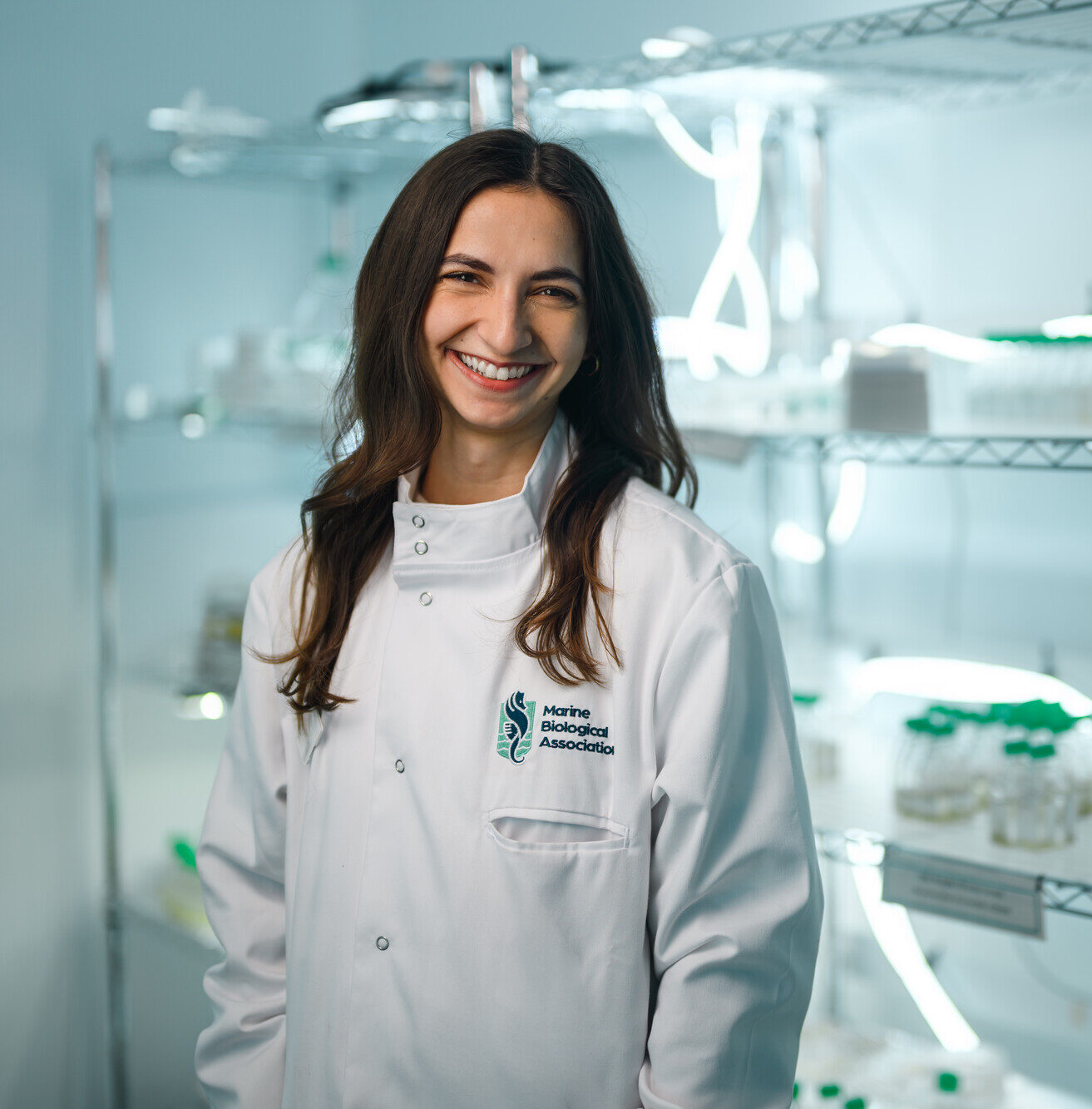
Courtney Swink
PhD Student
Courtney Swink
PhD Student
I am a marine microbial ecologist who found her love of research as an undergraduate at the University of South Carolina where I earned my B.S. in Marine Science and Biology. I became interested in working with marine microalgae, microscopic phytoplankton that are important ocean primary producers, during a summer REU with the Scripps Institution of Oceanography.
I am also interested in how we can improve growth of marine microalgae for biotechnology applications, so I studied microbiome community dynamics of large outdoor microalgae raceway ponds for my M.S. research at the Duke University Marine Lab. My interest in algal-bacterial interactions and how they can improve microalgae growth led me to work as a biologist at Lawrence Livermore National Lab for the U.S. Department of Energy.
I am currently pursing my PhD at the MBA and University of Exeter in the Helliwell group where I am studying the molecular mechanisms and prevalence of diatom-antagonistic bacteria.
